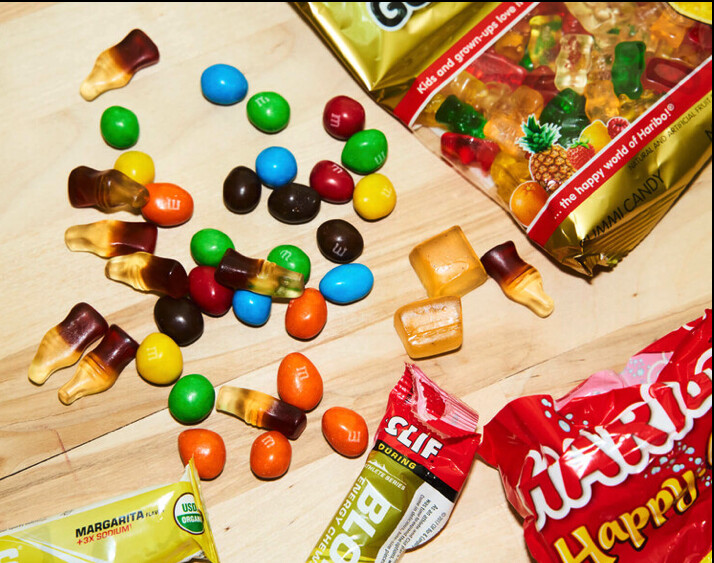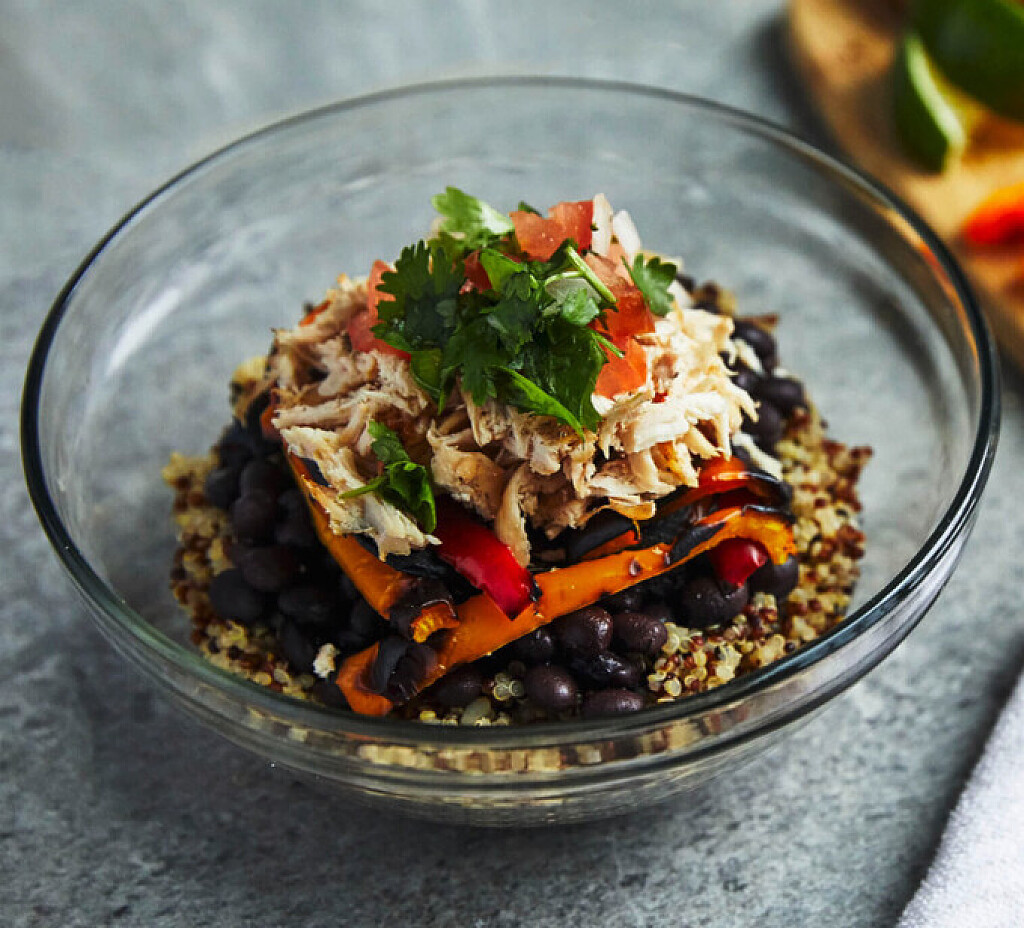Running News Daily
Running News Daily is edited by Bob Anderson. Send your news items to bob@mybestruns.com Advertising opportunities available. Train the Kenyan Way at KATA Kenya and Portugal owned and operated by Bob Anderson. Be sure to catch our movie A Long Run the movie KATA Running Camps and KATA Potato Farms - 31 now open in Kenya! https://kata.ke/
Index to Daily Posts · Sign Up For Updates · Run The World Feed
Expert Strategies for Eating to Boost Energy
YOU SLEPT EIGHT hours, snuck in an early run, and made time to meditate before jumping on your first Zoom call. Still, your brain feels fuzzy all morning. By the time afternoon hits, you’re ready for a long, hard nap. What gives?
Though many factors can influence energy levels, perhaps one of the biggest (and most understated) is your diet, including what you nosh on, how much, and when.

“Everything that we eat can impact how we feel and what we’re able to do throughout the day,” says Amity Lui, MS, RD, a New York City–based sports dietitian who works with runners.
High-quality fueling can mean the difference between navigating life in a fog and consistently crushing your days. Good nutrition can also better your running and overall health, allowing you to exercise with less fatigue, which boosts your performance and decreases risk of injury—all while supporting hormone health, digestion, metabolism, and immune functioning, says sports dietitian Yasi Ansari, MS, RDN, CSSD, spokesperson for the Academy of Nutrition and Dietetics.
In short, there’s a lot to gain from optimizing your eating habits. Here’s what experts recommend.
• Eat often during the day
The trend of intermittent fasting—where people abstain from eating for certain stretches of time—may have health benefits for some, such as those with type 2 diabetes. But what about for runners looking to optimize performance and feel energized? “You really need to have steady fuel throughout the day,” says Selvi Rajagopal, MD, MPH, assistant professor of medicine at Johns Hopkins University School of Medicine. That means no skipping breakfast or “forgetting” to eat lunch.
Rajagopal recommends eating every three to four hours to prevent drastic dips in blood glucose levels, which can lead to plummeting energy levels.
A better bet is to strive for three well-balanced meals spaced throughout the day plus several snacks in between. “Eating consistently is going to make a huge difference,” says Lui, who recommends runners fuel as often as every two hours, or even more frequently if hunger strikes.
• Strive for well-balanced meals and snacks
Carbs are commonly vilified, but they are an essential macronutrient, especially for runners. “Carbohydrates are the number-one source of fuel for endurance runners,” says Ansari, because they get broken down into glucose, which your body prefers to use for energy. Don’t skimp on carbs if you want to avoid fatigue.
At the same time, unless you’re fueling for a run, avoid eating simple carbs by themselves, as that leads to a rapid spike in energy followed by a drop, according to research. Instead, pair carbs with the two other macronutrients: fats and protein. This will help stabilize your blood sugar and provide sustained, steady energy.
Here’s a sample day of balanced fueling, from Rajagopal. Of course, tailor this to your preferences.
Breakfast: Oatmeal with fruit and peanut butter or Greek yogurt
Mid-morning snack: Apple with nut butter or carrots, hummus, and whole-wheat crackers
Lunch: A quinoa, farrow, or brown rice bowl with sweet potatoes, vegetables, and a lean protein, like chicken or canned tuna
Mid-afternoon snack: Cottage cheese or Greek yogurt with granola
Dinner: Half a plate full of veggies, a quarter or third filled with a starchy carb like potatoes, and the last quarter protein
• Refuel after you run–even if you’re not hungry
While the general advice of “eat when you’re hungry, stop when you’re full” can help you eat mindfully, exercise—especially intense exercise—can suppress hunger due to the release of certain hormones and the fact that blood gets diverted from the GI system toward working muscles. In fact, according to a recent poll of nearly 3,000 people on Runner’s World Instagram, 61 percent of respondents said they find it difficult to eat after a long run or hard workout. “It’s really hard to identify if you’re actually hungry immediately after a really hard run,” says Ansari. But waiting to eat can hinder your recovery and lead to a crash in energy, she says. So no matter how you feel postworkout, aim to consume at least a snack within 30 minutes and then follow that up with a full meal within one to two hours later, advises Lui.
If the thought of solid food soon after a hard run makes you queasy, turn to liquid nutrition, like smoothies and protein shakes. Prioritize carbs and protein, and aim for a ratio of 3 grams of carbs to 1 gram of protein following intense training, says Ansari. One of her go-tos is a smoothie with kefir, almond milk, or cow’s milk, 1 cup frozen mango, 1 banana, a scoop of protein powder, and granola or a side of toast and nut butter.
• Load up on micronutrients
High-intensity exercise—ahem, running—can stress your body and lead to feelings of fatigue. However, eating antioxidant-rich foods like fruits, vegetables, and leafy greens in particular can help combat those effects, says Ansari. Antioxidants help to fight free radicals and oxidative stress postrun, aiding in your recovery. To get your dose of these health- and energy-boosting nutrients, incorporate produce into your meals: Eat a cup of fruit at breakfast, have a side salad at lunch, and load up your dinner plate with veggies.
There are several other micronutrients commonly found in fruits and veggies (as well as other foods) worth adding to your plate. While a doctor can help you determine if you have a deficiency and need a supplement, it’s still important to consume foods that contain these nutrients.
Iron: A deficiency in this mineral can lead to fatigue and tiredness, both cognitively and while exercising, says Ansari. Vegan and vegetarian runners may be at increased risk of deficiency, as red meat is one of the best sources of bioavailable iron. Those who menstruate are also at increased risk, says Rajagopal. Increase iron stores by eating leafy greens (spinach, broccoli, and kale), whole grains, nuts, and tofu. Enhance iron absorption by pairing iron-rich foods with those high in vitamin C, such as fruits, bell peppers, and berries, says Lui.
Vitamin B12: Deficiencies can result in fatigue and shortness of breath, says Lui. Vegetarian and vegan runners may be more at risk of low stores, as animal products provide the highest sources. Seek it out in products like meat, fish, and eggs, as well as fortified cereals, whole grains, plant-based milks, and nutritional yeast.
Vitamin D: A deficiency that affects 42 percent of all Americans (not just runners), according to a survey, too little vitamin D can cause fatigue, increased muscle weakness, and pain, says Lui. Eat foods like canned fish, dairy products, and fortified products like plant milks and orange juice. The caveat: It can be hard to get enough vitamin D, says Rajagopal, so you may need a supplement. Again, consult your doctor.
• Avoid making dinner your biggest meal
Dinner is typically the biggest meal of the day, but that doesn’t necessarily support a solid night’s slumber, which is essential for optimal energy. “Most folks sleep better if dinner isn’t the largest meal,” says Rajagopal, explaining that “our bodies don’t digest and metabolize things as quickly in the evening” compared to earlier in the day.
Instead of getting the bulk of your nutrition at dusk, eat consistently throughout the day. Also have dinner about three hours before bed to lower your risk of sleep-harming issues, like acid reflux.
• Have a slumber-inducing evening snack
If you end up feeling hungry between dinner and bed, reach for a small snack an hour or two before snooze time, says Lui, and get strategic about which snack you choose to best support sleep (and thus improve your overall energy). Ansari recommends Greek yogurt with fruit and a side of trail mix—a combo that provides magnesium, a nutrient that in one study of older adults helped them fall asleep faster.
You may also consider foods containing tryptophan, an amino acid that plays a role in the production of serotonin and melatonin, which support the onset of sleep and relaxation, Ansari says. Options include turkey, banana, oats, and tart cherry juice.
WHAT ZAPS YOUR ENERGY
Minimize energy dips by avoiding these foods and habits.
ULTRA-PROCESSED FOODS / Foods high in sugar and low in protein, fat, and fiber can provide an energy jolt if eaten soon before and during a run. But chowing on them in your day-to-day can lead to a rapid spike in energy followed by a slump, says Selvi Rajagopal, MD. Instead, eat snacks that offer macronutrients (carbs, protein, and fat) and fiber, and those low in added sugar, says Rajagopal.
DEHYDRATION / Research shows that as little as 2 percent dehydration can negatively affect performance, says Amity Lui, RD. “Not being adequately hydrated can make the body feel like it’s working harder,” adds Yasi Ansari, RDN. Lui says a good rule of thumb is to check the color of your pee. If it’s the shade of lemonade, you’re hydrated; if it’s akin to apple juice, you need a drink.
SPORTS DRINKS OUTSIDE OF A WORKOUT / Unless you’re hydrating during or after a workout, steer clear of sugary beverages, including sports drinks and hydration aids, says Rajagopal. Instead, consider water with a squeeze of citrus fruit.
UNDERFUELING / When athletes feel fatigued, it can sometimes be because of nutrient deficiencies, but most often, it’s because they simply aren’t eating enough, says Ansari. Research identifies low energy availability as one of the most significant factors associated with illness and injury risk in endurance athletes.
Login to leave a comment




